- Home
- Newt Gingrich
Victory at Yorktown: A Novel
Victory at Yorktown: A Novel Read online
The author and publisher have provided this e-book to you for your personal use only. You may not make this e-book publicly available in any way. Copyright infringement is against the law. If you believe the copy of this e-book you are reading infringes on the author’s copyright, please notify the publisher at: us.macmillanusa.com/piracy.
There is only one dedication that is truly fitting for the conclusion of this trilogy. To the memory of those who fought by Washington’s side, from Boston to Yorktown, and our all but forgotten allies, the French troops and sailors who insured our victory at Yorktown. In a world where, at times, friendships of old can be forgotten, we should always honor the memory of the aid France gave us in our struggle for liberty, and in turn, the sacrifice we offered back in the great struggles for freedom of the twentieth century.
Contents
Title Page
Copyright Notice
Dedication
Acknowledgments
Map of Washington’s March
Map of the Battle of Yorktown
Part I. Major Andre, Upstate New York, September 30–October 1, 1780
Prologue: Headquarters of the Continental Army, near West Point on the Hudson, New York, September 30, 1780, 8:00 P.M.
1. Near Tappan, New York, October 1, 1780
2. Near Tappan, New York, October 1, 1780
Part II. The Battle of Guilford Court House, North Carolina, March 15, 1781
3. In front of Guilford Court House, March 15, 1781, an hour before dawn
4. On the postal road, ten miles south of Philadelphia, March 20, 1781
5. Phillipsburg, New York, August 14, 1781, 6:00 A.M.
6. New York, August 16, 1781
7. Tappan Ferry on the Hudson, August 19, 1781
8. The banks of the Hudson near Dobbs Ferry, August 23, 1781
9. Outskirts of Philadelphia, August 29, 1781
10. Philadelphia, early evening, August 29, 1781
11. Philadelphia, eventide, August 29, 1781
12. Headquarters, Royal Forces in North America, New York, September 2, 1781
Part III. The Battle of Yorktown, September–October 1781
13. Headquarters of General Cornwallis, Yorktown, September 17, 1781
14. In front of Yorktown, September 20, 1781, two hours before dawn
15. Yorktown, the night of October 6–7, 1781
16. Headquarters of General Washington, night of October 8, 1781
17. Yorktown, October 19, 1781
18. Philadelphia, November 11, 1781
Epilogue: Fraunces Tavern, New York City, December 4, 1783
Also by Newt Gingrich and William R. Forstchen
About the Authors
Copyright
Acknowledgments
George Washington can be a hard persona to touch emotionally. It is easy to picture an evening with Abraham Lincoln, him leaning back in his chair, long legs stretched out and resting atop his desk, spinning out stories, some funny, some profound, some deeply emotional. He is easy to picture as “one of us.” This was due, in large part, to the advent of the new technology of photography that left us with hundreds of images of him, which captured, as Carl Sandburg wrote, this “Hoosier Michelangelo.” Consider the world before photography, how anonymous the lives of even the famous could be. It explains in part why kings once wore crowns so that all recognized the king, and there were strict laws restricting you to wearing clothing only of your social caste so we could sort out “who was who.” It can rightly be said that Abe was our first modern-media president, and thus seems far more “reachable” and familiar to us.
Forty years later it was even more so with Teddy Roosevelt, of whom we have motion pictures and sound recordings. All toothy grin, more than a touch of bombast, but a man you could easily tag along with as he hiked with John Muir through what would become our glorious National Parks that are his legacy, or yes, even charge with him up “San Juan” Hill. With FDR we know we could be charmed and maneuvered as he mixed a martini, his warm patrician voice so familiar from his fireside chats. Then there is Ronald Reagan, a film star before he became president, his motion picture images already casting for so many of us, his admirers, as the embodiment of the quintessential goodness, strength, and wisdom from the Old West and apply it so correctly and forcefully in the confrontation with an evil empire. Here, as well, was a man we feel we could sit back and chat with. With all these great leaders we can build an image, real or not, based upon photographs, printed newspapers, and as early as T.R., recordings of their voice and moving images.
But George Washington?
Our only image of him comes from the posed and formal paintings of the era. There is no recording of his voice. His features are even hard to define, except as marble busts like those of the ancient Romans. Even much of his personal side is lost to history. While there survives the lively, warm, at times, even passionate correspondence between John Adams and his “dearest friend” Abigail Adams, which spanned decades, upon the death of Washington, Martha burned over thirty years of personal correspondence. What a rich treasure, like a burnt offering on a pyre, went up in smoke that day! It could have reshaped the marble bust into a man just like us, and just as accessible to historians and writers as melancholic Lincoln or a grinning Teddy Roosevelt.
When my coauthor Bill Forstchen and I decided to write a trilogy about George Washington and the Revolution the task seemed daunting. We are historians, but we also love a good story and believe that neglect of good stories has always been the failure of most traditional histories, which turn such exciting adventures and personas into dull and lifeless facts. The challenge? How do we bring Washington alive?
The glimpses of him as a man, just like us, are indeed rare. As a general in command of an army desperately hanging on against near-impossible odds, he had to remain aloof, calm, and ever-confident. For any show of weakness or doubt could have, most definitely would have, caused a collapse of that heroic, starving, and ragged “band of brothers.” As president he was aware that he was being watched by the entire world. He was the central actor on the stage of an entirely new form of government. The slightest comment or gesture carried grave significance. He knew he was establishing precedents and he played his role to perfection.
But what of the man within? As trained historians we of course had to adhere to facts, but as historians who believe that novels can enrich and broaden our knowledge of the past, our quest became one of trying to delve within, and at the same time, reveal the nature of the men who fought by his side, and as well, those who fought against him.
Consider that wonderful movie, The Last of the Mohicans. Beyond its grim story of the brutality of the French and Indian War, we had personalities that engaged us. The brave and appealing “Hawkeye,” the pompous British major who in the end comes through with a noble sacrifice, and even the villain Magua, who carries the realization of the tragedy that made him thus. Few realize this was, as well, the world and the war in which George Washington matured to manhood. Few can picture him, as he was in his early twenties, out on the frontier of the 1750s as a scout, a leader of a tough band of borderland “rangers.” We tend to picture Washington toward the end of his life, living in the stately mansion of Mount Vernon, rather than as a young man as much a frontiersman as Hawkeye, Daniel Boone, or his friend and comrade in arms Dan Morgan. Few can picture him as a powerfully built man, considered nearly a giant for his time at 6'2". He was known as the finest horseman in northern Virginia. First in any race at breakneck speed, admired even by his Native American foes, who believed that the hand of God protected him, for how else to explain his reckless courage in battles from which he
always emerged unscathed. He was even a man, like “Old Abe,” capable of outwrestling any of the local frontier toughs. Long before our Revolution, he was admired and respected. When the great crisis finally came, there was near-unanimous assent that he should be our military leader. Such trust does not coalesce around marble statues, pompous fools, or wax images. In the Americas of the eighteenth century such trust was earned by a man’s reputation, his gravitas, as the Romans would have defined it, and by his moral strength. Only such a man could have pulled together such a divergent group of true revolutionaries, from Georgia to New Hampshire, and ultimately welded them into an army that against all odds humbled the greatest empire in the world.
This is the Washington we sought to capture in our trilogy that concludes with the story of Yorktown. This is the man who startled the world, when not once, but twice, he renounced the prospect of absolute power, as an army commander and later as a president, to return back to private life, saying he had merely performed the service that any citizen of a free republic should embrace. Little wonder that his greatest foe, King George III, would finally proclaim that Washington would be remembered as the greatest man of his century.
Prior to our trilogy about Washington, Bill Forstchen and I enjoyed writing what we call “active history” and most call “alternative history.” But for Washington? His story is so astonishing and inspiring that we knew we had to write it “as it was.” Our goal was to delve into the heart and soul of this enigmatic figure and try to bring him to life. Most certainly he was one of the greatest leaders in history, but what of the man within?
On the night before his crossing of the Delaware, during the freezing nights of Valley Forge as he watched his army all but collapsing from starvation, disease, and cold, on the boiling hot plains of Monmouth, New Jersey, in what we believe was the turning point battle of the war, and on the long desperate march, a near-forlorn hope, to Yorktown, were there not moments of fear, of hesitation, of near-crushing fear that all would be for naught? What inner struggles were there with the Titan-like weight placed upon his shoulders, when a single mistake could have doomed our efforts, and with every decision, the lives of thousands of men who followed him were put in the balance?
This is the Washington we wished to reach for and we hope that you, the readers, believe we have reached that mark.
To have achieved this required five years for three books, in which other efforts at times held our attention as well, such as a bid for the presidency, along with our roles as parents and citizens. Thanks are owed to many. Of course there is Steve Hanser, our technical editor, who resolved many a difficult question. For Bill Forstchen there was his ever-patient daughter, Meghan, who, while this series was being written, went through her teenage years and knew so often that when her father said “just let me finish this chapter,” a day might pass before he emerged from his office. As always for Bill there are thanks to his school, Montreat College, with an ever-understanding staff and president when he was wrapped up in research or writing, and, on occasion, wandered in late for a class, or needed several days off for research travel. As he worked on the series he shared parts of it with his history classes and drew inspiration from their responses. Thanks, as well, to his close aviation friends Don Barber and Danny McMullen, who kept him safe when he sought a few hours of relaxation, flying his World War II–era plane in order to “clear his head.” Thanks, as well, to friends such as Maury Hurt, John Mina, Frank Smith, and fellow author Bill Butterworth, who were always there with encouragement.
I’m grateful to our agent, Kathy Lubbers, and to our advisers, Randy Evans and Stefan Passantino; the talented staff of Gingrich Productions and other members of the Gingrich team, including Alicia Melvin, Joe DeSantis, Anna Haberlein, Vince Haley, Jorge Hurtado, Bess Kelly, Christina Maruna, Kate Pietkiewicz, Michelle Selesky, Liz Wood, and Ross Worthington.
We extend our deepest thanks to Pete Wolverton and Tom Dunne for their partnership and support of this book. Anne Bensson is tremendous asset, as are the copyeditor, Bob Berkel, the proofreader, Ted O’Keefe, and the production editor, David Stanford Burr.
We hope that you find this third work of our trilogy about Washington and the Revolution to be as engaging as so many have said the first two were. We part from this series with one final thought. All along, from the first day we started, and in fact, far back to earliest childhood, we both knew how the story ends. We win at Trenton, we endure Valley Forge, and we achieve triumph at Yorktown. General George Washington will become President George Washington, indeed, “first in the hearts of his countrymen.” In a sense, it was therefore easy to tell his story.
Consider it from his perspective. Like all of us, we know not what tomorrow will bring, be it fulfillment of hopes and dreams, or a darkness filled with tragedy and loss. Consider the moral, the spiritual strength of George Washington the man. On the freezing stormy night before Trenton, or the long grueling march to Yorktown, not sure if it was a final futile gesture. Consider the strength within his soul. Regardless of inner turmoil and potential doubt, he knew that as a leader who all turned to for hope and inspiration, he must indeed lead and offer inspiration. He did his duty admirably well and thus created the nation we have today. We owe him all, as a general, as a leader, and as a man. Let us work together to insure the legacy he gave us is passed, unsullied unto generations of Americans yet to be born. That is our duty to them; it is our duty as well to that most remarkable of men, George Washington.
Part One
MAJOR ANDRE, UPSTATE NEW YORK,
SEPTEMBER 30–OCTOBER 1, 1780
Prologue
HEADQUARTERS OF THE CONTINENTAL ARMY
NEAR WEST POINT ON THE HUDSON, NEW YORK
SEPTEMBER 30, 1780
8:00 P.M.
Darkness blanketed the Hudson River Valley, the glow of hundreds of campfires reflecting off the low scudding clouds, passing in the wake of this afternoon’s rain. He left the window open to admit the fresh evening breeze even though if Martha were here, she would slam it shut, cautioning him about the danger of chills and fever borne on such a breeze.
It was a strange silly notion. As a young man he had spent years out on the edge of the frontier, either campaigning in the last war or surveying after the conflict had ended. He would go for months at time with only a bit of canvas over his head, but once back in the house where Martha held sway and even on the most sweltering of nights, she held religiously to the belief that night air coming in through an open window was dangerous. Of course he indulged her, there were some things, even though he was commander in chief of all American forces in the field, he nevertheless deferred to his wife and usually did so gladly.
He wished for her presence this evening with a deep longing. Whenever presented with what he felt was not a military question but instead a moral decision, it was her advice he always turned to. The decision he had just made, the paper he was about to sign was, indeed, a military decision, that was and would always be how he defined it, and yet it was, as well, a moral question forced upon him by this never-ending war.
General George Washington stood up, stretching, his towering six foot two height nearly brushing the low beams overhead. Opening the door to his office he stepped out, the guards flanking it snapping to attention. Alexander Hamilton, busy at work in his office across the hallway with the door open, looked up, ready to be summoned. Washington shook his head and gestured for him to remain at ease, then headed for the front door, opened it, and stepped out into the night, the guards posted outside coming to attention as well.
Hands characteristically clasped behind his back he started into the night. He had barely taken a dozen paces and then heard footsteps trailing behind him. A bit annoyed, Washington turned to see Hamilton racing to catch up, half a dozen guards following.
“Alexander,” he sighed, “I’m just going for a walk.”
“Sir, after the events of the last week, I must insist that a guard accompany you at all times. One cannot b
e too cautious.”
It was obvious Hamilton was filled with concern for his wellbeing, at times too much so, but he knew the young man to be right. After the events of the last week …
“All right then, Colonel Hamilton,” he sighed and looked at his guard detail, “but no need to hem me in, young sir. Indulge me by just following along at a decent interval.”
The men encamped near his headquarters, having finished their evening meal of salt pork and whatever they could forage on the sly or barter for from nearby farms, were settling down for the night. He did not enter the encampment area, that would simply trigger all the usual calls to attention, rousting men out, with nervous young officers trying to put on a show of having their men properly attired and lined up to present arms. When serving with the British during Braddock’s disastrous campaign back at the start of the French and Indian War, he had endured such foolery often enough. British main line infantry were used to such, as part of the ordinary annoyances of life, but volunteers, especially militia, detested it all after the first few times, and saw it as yet another bloody officer lording it over them and disturbing the one time of day they could call their own and relax.
He took a wooded path instead, his usual evening stroll, down to a knoll that looked out over the magnificent Hudson. He knew that following this routine had set off Hamilton, who softly ordered a couple of the guards to angle off into the woods to either side, run ahead, and act as flankers, in case someone, be it assassin, ambusher, or even British agents intent upon snatching him as a prisoner, might lay in wait.
Two weeks ago he viewed such as bordering on insanity, but no longer.
A man he had trusted as a brother, a man of whom he had more than once said should replace him in command if he fell in battle, had, indeed, betrayed him.
Benedict Arnold.
He had been unable to dwell on little else these last two weeks, it was almost obsessive, but such a base betrayal could not help but wound him to the core, with thoughts of it filling nearly every waking moment.

 1945
1945 Collusion
Collusion Trump's America
Trump's America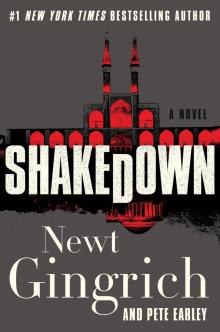 Shakedown
Shakedown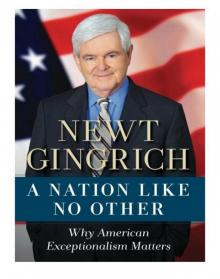 A Nation Like No Other
A Nation Like No Other To Try Men's Souls - George Washington 1
To Try Men's Souls - George Washington 1 Pearl Harbor: A Novel of December 8th
Pearl Harbor: A Novel of December 8th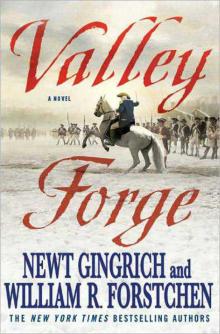 Valley Forge: George Washington and the Crucible of Victory
Valley Forge: George Washington and the Crucible of Victory To Save America
To Save America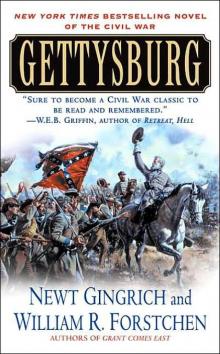 Grant Comes East cw-2
Grant Comes East cw-2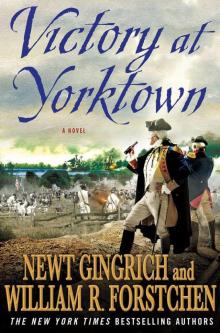 Victory at Yorktown: A Novel
Victory at Yorktown: A Novel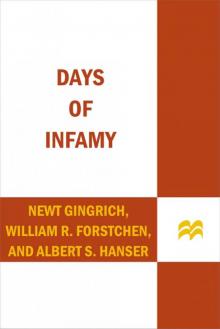 Days of Infamy
Days of Infamy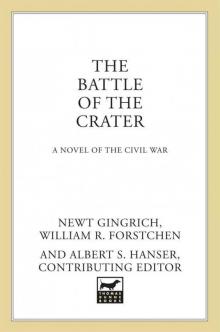 The Battle of the Crater: A Novel (George Washington Series)
The Battle of the Crater: A Novel (George Washington Series)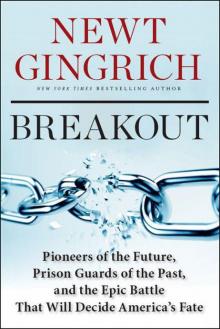 Breakout: Pioneers of the Future, Prison Guards of the Past, and the Epic Battle That Will Decide America's Fate
Breakout: Pioneers of the Future, Prison Guards of the Past, and the Epic Battle That Will Decide America's Fate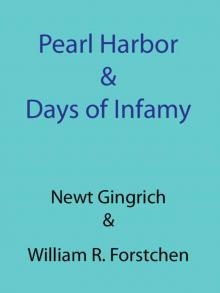 Pearl Harbour and Days of Infamy
Pearl Harbour and Days of Infamy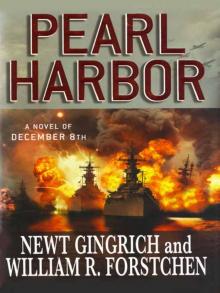 Pearl Harbour - A novel of December 8th
Pearl Harbour - A novel of December 8th Understanding Trump
Understanding Trump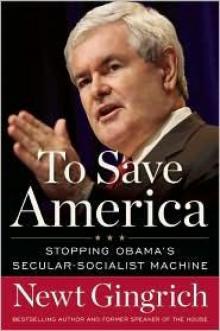 To Save America: Abolishing Obama's Socialist State and Restoring Our Unique American Way
To Save America: Abolishing Obama's Socialist State and Restoring Our Unique American Way